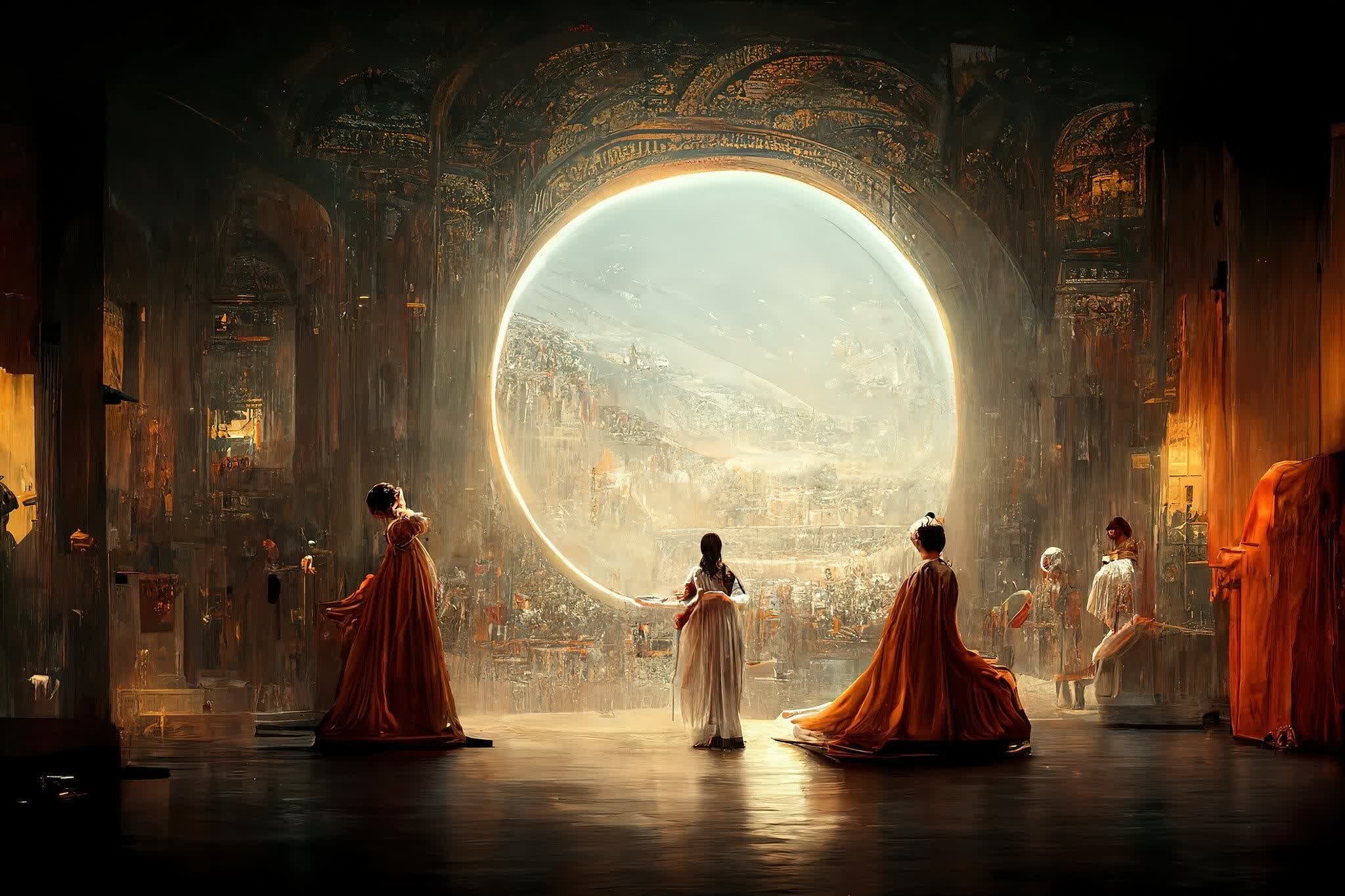Facepalm: In what many are calling a deliciously ironic twist, a man who won a digital art competition using an AI-generated image and was thoroughly unapologetic about it is now complaining that people are stealing his work – an accusation that artists have long leveled against AI-powered image-generating tools.
In 2022, Jason M. Allen of Pueblo West, Colorado, an executive at a tabletop gaming startup, took home first place in the Colorado State Fair's annual digital art contest. His piece, Théâtre d'Opéra Spatial (top), had been created using Midjourney, something that angered many artists.
"I'm not going to apologize for it," Allen said at the time. "I won, and I didn't break any rules."
"Art is dead, dude. It's over. AI won. Humans lost," he added.
Allen's hubris appears to have come back to haunt him. As reported by Gizmodo, Allen has been trying to register his image as copyrighted work since late 2022. That's proving difficult, given that more than one judge has ruled that art created by generative AI cannot be copyrighted as human authorship is an essential part of a valid copyright claim.
Allen filed an appeal in Colorado federal court last week arguing that he should be allowed to copyright his work, mostly because he's not making enough money from it.
"I have experienced price erosion in the sense that there is a perceived lower value of my work, which has impacted my ability to charge industry-standard licensing fees," he told Colorado Public Radio.
Allen also complains that people have been stealing his work. "The Copyright Office's refusal to register Théâtre d'Opéra Spatial has put me in a terrible position, with no recourse against others who are blatantly and repeatedly stealing my work without compensation or credit," he said.
words of David Holz (midjourney founder), from forbes article (link below): pic.twitter.com/rnWP28rrag
– Maciej Kuciara (@maciej_kuciara) December 20, 2022
Ever since their inception, image-generating AIs have faced complaints from artists that they are scraping images to train their models without consent from the creators. In 2023, a class action copyright lawsuit was launched against Stable Diffusion, Midjourney, and other AI-related companies by artists.
"There have been instances where people outright have ripped off my work, incorporated the entire piece into a new piece," said Allen, who might now know how it feels. "There are people who have literally posted my work for sale in print or as crypto and are trying to sell it on OpenSea or Etsy."
According to his lawyer, Allen had an "extensive dialogue" with Midjourney to create the image.
Allen says he edited Théâtre d'Opéra Spatial in Photoshop and with Gigapixel AI after Midjourney produced it. He argued in court that entering the series of prompts that created the image, adjusting the scene, and dictating the tone of the image was on par with the creative effort "expressed by other types of artists and capable of copyright protection." One imagines that other artists would strongly disagree with this assertion.
"As AI continues to evolve, it is imperative that our legal frameworks adapt to protect the rights of those who harness these technologies for creative expression," Allen's lawyer said. They should probably protect those whose hard work is being used to train AI, too.
